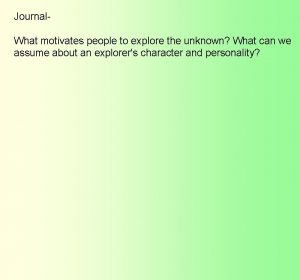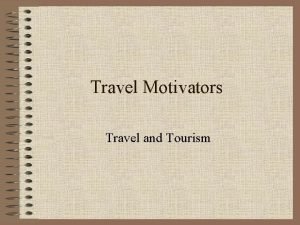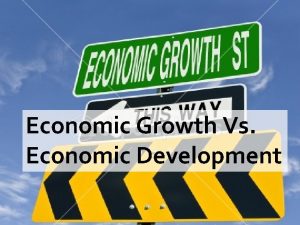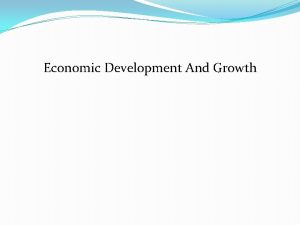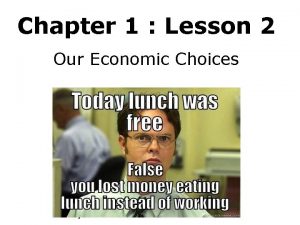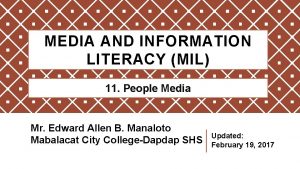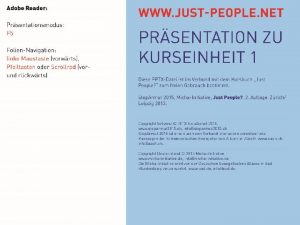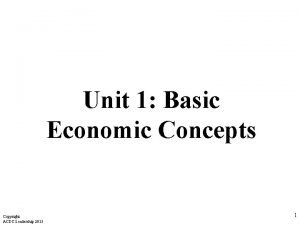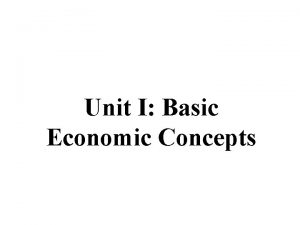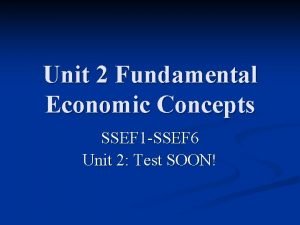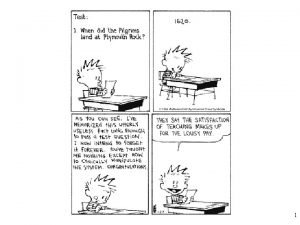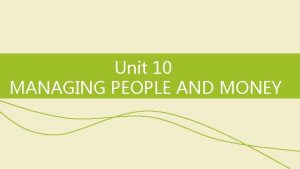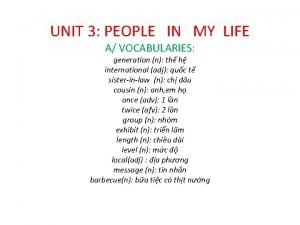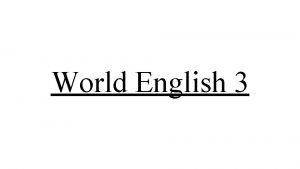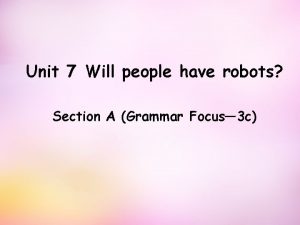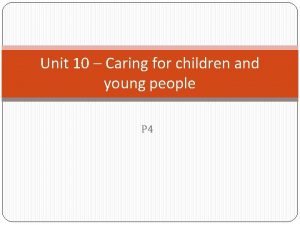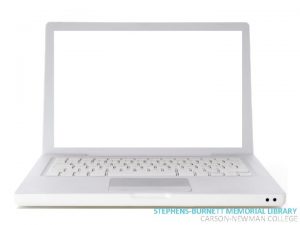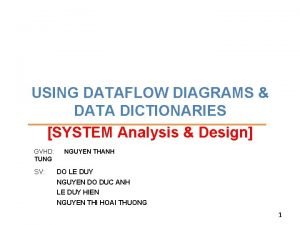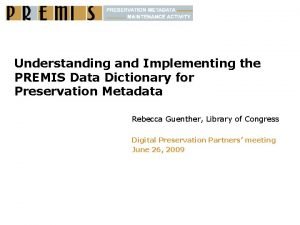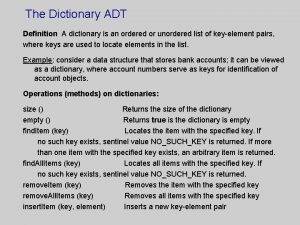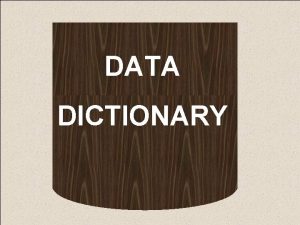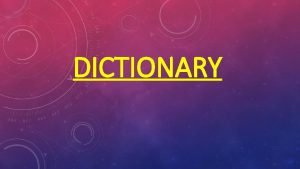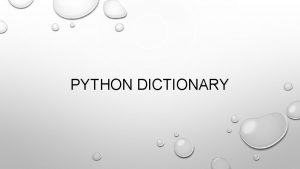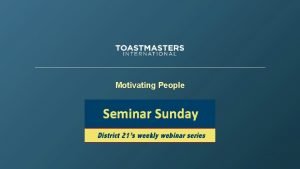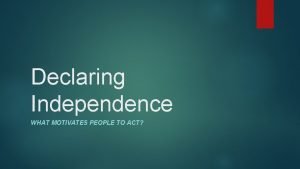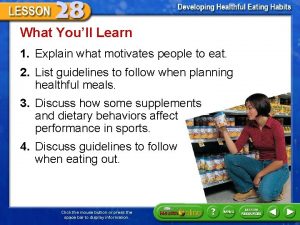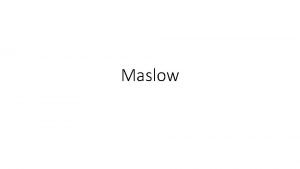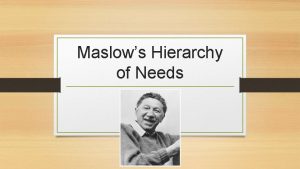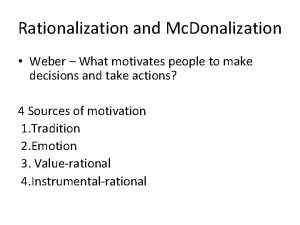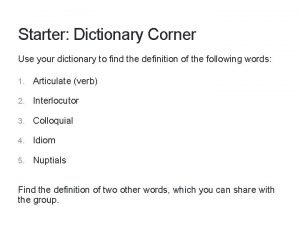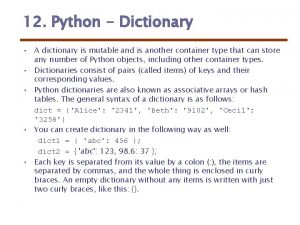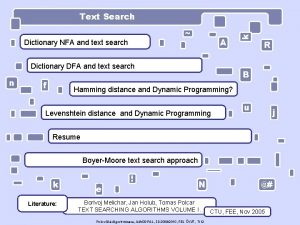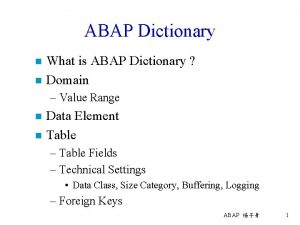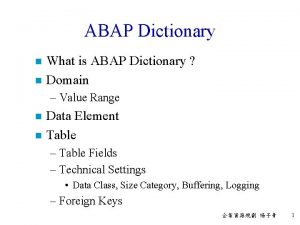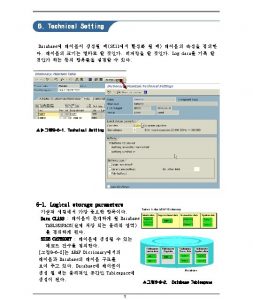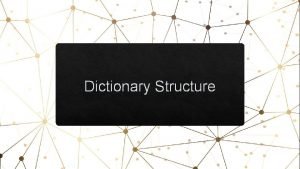Economic Dictionary Unit 4 What motivates people n





























- Slides: 29

Economic Dictionary Unit 4

What motivates people? n What motivates people to get things they want and need? n $$$$$$

Economic system n The way in which a nation uses its resources to satisfy people’s needs and wants.

Real World Example n What will be produced? How will it be produced? For whom will it be produced? What resources do we have? n The oil rich countries in the Middle East. n n n

For example… n n You go to the mall and want to buy a DVD, t-shirt, & pair of shoes. You only have $10. 00 so you don’t have enough resources (Money) to meet your wants How people handle the problem of satisfying unlimited wants with limited resources

Command Economy n The government decides what goods will be produced, how they will be produced, and how they will be distributed

Real World Example n Example-communist countries like Cuba and N. Korea n -Workers get same pay so poor quality of goods n -little incentive for quality or workers

Traditional Economy Economic system in which social roles (elders) and culture determine how goods are made, sold, and bought. n Resources are determined by inheritance, based on primitive methods and tools n

Real World Example n subsistence farming n People produce most of what they need to survive n Common in poorer countries n Carpet makers, hand made crafts

Market Economy (capitalism) n Based on individual choices and voluntary trade n Free enterprise n Individuals and business make economic decisions

Real World Example n Skill, education and type of job determine salary n United States’ economy has a large portion of market economy

Mixed Economy n Economic system that has features of traditional, command, and market

Real World Example n Most countries are mixed n United States- examples: minimum wage (government determines), quilts made by the Amish (traditional) and private owned businesses (market)

Voluntary Trade People trade freely n Trade is the voluntary exchange of goods, services, or both. n

Real World Example n One country (US) decides to trade with Japan n Japan has products US citizens want-electronic, cars, technology

Trade Barriers n. Any law or practice that a government uses to limit free trade between countries. Trade barriers can be physical barriers as well.

Real World Example n Tariffs (taxes) and quotas n Embargos (US against Cuba) n Physical barriers could be war or landforms

Exchange Currency/Rate n Amount of one currency that can be purchased for a given unit of another

Real World Example n n n Money is currency Value of currency between countries changes -it affects the cost of goods between countries Ex: In Japan it costs more yen to buy an Australian dollar so Japan pays more for Australian products

Currency n Money in any form that is accepted as a medium of exchange, but specially paper money

Real World Example n Currency is name of a country’s money- it looks different and is valued different n Euro – the common currency of most of Europe n Saudi Arabia-riyal n Israel-shekel n Japan-yen

Entrepreneur n Someone who brings together land, labor, and capital goods to produce goods and services

Real World Example n Business owner who thrives on free enterprise n Bill Gates –Microsoft n Walt Disney—Disney animation company (expansion)

Human Capital n Knowledge and skills that allow workers to produce goods and services and earn an income. n People exchange their labor for wages. n Investing in their human capital helps people earn higher wages

Real World Example n College education is human capital n Trained employees n Japan’s greatest resource is the skill of their people

GROSS DOMESTIC PRODUCT (GDP) n Total market value of all goods and services produced in a country

Real World Example n U U. S $13 trillion Saudi Arabia $366 billion Japan $4 trillion Botswana $17 billion What can the GDP tell you about a countries economic development?

CAPTIAL n Resources that people use to make other goods

Real World Example n Factories n Machinery n Tools n These are key for economic growth
 What motivates people to explore the unkown
What motivates people to explore the unkown The detective needs more time to inquire about the case.
The detective needs more time to inquire about the case. How does montresor manipulate fortunato
How does montresor manipulate fortunato Readiness is all
Readiness is all What motivates you to travel
What motivates you to travel What motivates you
What motivates you Economic growth vs economic development
Economic growth vs economic development Economic growth vs economic development
Economic growth vs economic development Economics unit 1 lesson 2 difficult choices
Economics unit 1 lesson 2 difficult choices Unit 6 review questions
Unit 6 review questions Media as people
Media as people People killin people dying
People killin people dying Transformed people transform people
Transformed people transform people Justpeople
Justpeople Single economic unit
Single economic unit Ap macro unit 1 basic economic concepts
Ap macro unit 1 basic economic concepts Unit 1: basic economic concepts answer key
Unit 1: basic economic concepts answer key Unit 1 review fundamental economic concepts answers
Unit 1 review fundamental economic concepts answers Unit 1 basic economic concepts
Unit 1 basic economic concepts Unit 10 managing people
Unit 10 managing people Og ot a llagyre
Og ot a llagyre Unit 1 people
Unit 1 people Unit 7 people
Unit 7 people Unit 1 people
Unit 1 people Unit 10 caring for children and young people
Unit 10 caring for children and young people Webster's dictionary
Webster's dictionary Guide words meaning
Guide words meaning System analysis
System analysis Premis data dictionary
Premis data dictionary Adt dictionary
Adt dictionary
